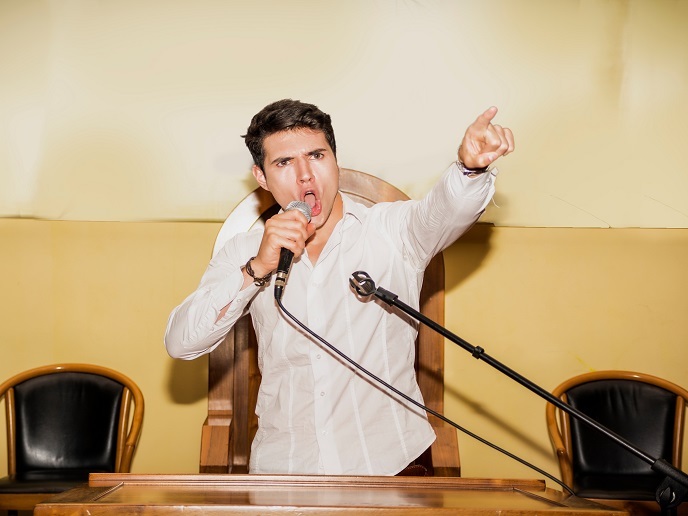Testing the link between politics and appeals to emotion
In politics, emotions can run high, and a suitably emotive campaign can sway an election. Are politicians today making more emotional appeals to citizens than in the past? Do these appeals work to change the politics of a society, and if so, what type of emotional appeals are most effective? The POLEMIC project, which was funded by the European Research Council, sought to answer all these questions and more. A team of researchers led by Gijs Schumacher, associate professor in Political Science at the University of Amsterdam, used state-of-the-art methods to examine historical emotional appeals by politicians, and whether people responded to them. “From disciplines such as psychology, linguistics, sociology and political science we were able to generate different hypotheses that would explain why certain emotional appeals of politicians would affect us,” says Schumacher, POLEMIC project coordinator. The team analysed historical speeches from the ParlGov database, which contains 30 years of speeches from politicians in seven countries, and EUSpeech, which holds head of government speeches from 15 countries over the past 20 years, as well as Twitter data from Denmark. Despite the recent shift toward populist politics in Europe, “we didn’t find that language in politics is becoming more emotional, as is often suggested,” notes Schumacher. “Rather there is much more variation over time and between countries.”
Exploring emotional appeal
The researchers explored the effects of emotional appeals, both in text and in facial expressions. In one test, they used software to manipulate the expressions of ingroup and outgroup political leaders – those who share a person’s political identity or not – and of ordinary citizens. They found strong unconscious responses toward the outparty leader, detected with both electroencephalography (which measures brain activity) and facial electromyography (which measures faint movement in the muscles used to smile or frown). “This implies we have strong emotional responses to outgroup leaders, and pay close attention to them,” explains Schumacher. Another test exposed participants to two election posters, with politicians’ facial expressions, tone and ideology all manipulated. “Smiling and positive tones both work really well,” adds Schumacher. This was the case even when political views didn’t align. “In one study we found that the probability of voting for a politician whose statement you disagree with is still 50 % as long as this politician smiles,” says Schumacher. The perhaps surprising result is that negative emotional appeals are less effective than positive ones.
A mismatch of emotions
The project also investigated what it means if citizens claim to be angry, anxious or hopeful about politics. Using people’s descriptions of situations that elicited specific emotions together with a set of survey questions, the project identified “that people often mismatch their emotions with the situation,” remarks Schumacher, “a really surprising finding, because we can do this in a more personal setting.” This only refers to the conscious experience of emotions, however. “Emotions are a much richer phenomenon, they also include unconscious processes,” he adds. In several studies the conscious and unconscious response to a political stimulus did not match. The findings could lead to new interventions that improve the match between our evaluation of the situation, and the emotions we think we feel, explains Schumacher. This will be explored in a new EU-funded project, Interdisciplinary Perspective on Adolescence and Democracy. “We have to be more critical toward some of the discourse regarding emotions in politics,” says Schumacher. “Journalists, politicians and opinion-makers speak of angry or anxious citizens, but we have to be more critical about what that implies.”
Keywords
POLEMIC, emotion, speech, politics, historical, data, journalists, mismatch, appeal







